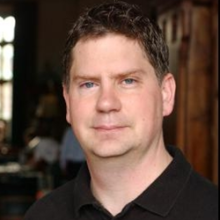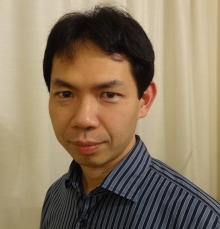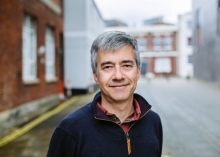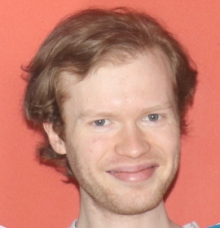

Explore our Theoretical Cosmology research
Image credit: ESO/WFI (Visible); MPIfR/ESO/APEX/A.Weiss et al. (Microwave); NASA/CXC/CfA/R.Kraft et al. (X-ray)
Theoretical cosmology is the study of the constituents and evolution of our Universe as a whole, from the earliest stages to the present day. It involves building consistent theoretical models and testing their validity using data from experiments and observations.
It is known that the Universe is expanding, and that this expansion is accelerating due to the effect of dark energy. It is also believed that there was a phase of extremely accelerated expansion in the first picosecond. The extremely high energies at this time connect the fields of particle physics and cosmology, and allow both to be tested simultaneously.
We develop accurate analytical and numerical models for the physics of the Universe, and apply them to study the theories of inflation and gravity, and examine the effects of dark energy.
Our work has significant overlap with other areas of expertise in the ICG:
- Observational cosmology data from surveys and collaborations provides the statistical power to test our theories and either disprove them, or constrain their parameters
- Gravitational waves offer a unique probe of exciting physics at both the earliest times and the more recent past
- Astrophysical objects such as galaxies and stars offer novel ways to test gravity and the nature of dark matter
Our work explores the following topics
- Very early Universe
- Dark energy
- Tests of gravity
- Cosmic microwave background
The problems and issues that our research seeks to understand include:
- How did the Universe evolve in its very earliest stages? A period of rapid expansion known as inflation is believed to have happened in the very early Universe. We’re researching different mechanisms for inflation and alternative models, applying the latest theories in particle physics and quantum gravity, with the aim of distinguishing between different models using observational data.
- What is the Universe made of? We know that dark energy makes up 70% of the energy in the present Universe. We explore different theoretical frameworks to build competing models of dark energy. To distinguish between various alternative scenarios, we study the impact of dark energy on the collapse of large structures and gravitational potentials, applying techniques such as accurate distance and velocity measurements, gravitational lensing, and imprints in the CMB.
- Is Einstein’s gravity the correct theory? Einstein’s theory of general relativity is in agreement with all available experiments and observations, but it may not hold near very strong sources or on the largest scales. We’re developing cosmological tests of gravity related to the cosmic expansion and the large scale structure of the universe, applying data from major surveys and international collaborations, such as SDSS, DES, LSST, DESI, Euclid, and the SKA.
The Institute of Cosmology and Gravitation

Our researchers are based in The Institute of Cosmology and Gravitation at the University of Portsmouth, which is dedicated to answering the big questions in cosmology.
It's one of the largest groups in the UK, providing a unique environment where different facets of cosmology interface, from theory to observation, from simulation to statistical analyses.
Our methods
To address our research problems, we adopt various complementary methods. For modelling the phenomena we are interested in, we use mathematics and theoretical physics techniques, such as differential geometry, particle physics, quantum and classical field theory.
We also apply a number of numerical methods, such as modelling of stochastic dynamics, numerical relativity, and simulations of theories of gravity beyond Einstein.
Finally, we apply statistical inference to constrain the theories we study using data obtained from observations and experiments.
SCIAMA supercomputer
Intensive numerical computations are run on SCIAMA, the High Performance Computer cluster supported by ICG, SEPNet and the University of Portsmouth.
Research partnerships
UK Cosmology
Consisting of more than 250 researchers from various UK institutions, UK Cosmology is a community dedicated to the physics of the Universe. They run a series of meetings, providing a forum for PhD students and early career researchers.
European Space Agency missions
We are part of international collaborations such as the European Space Agency Euclid and Laser Interferometer Space Antenna (LISA) missions.
European Consortium for Astroparticle Theory
The European Consortium for Astroparticle Theory (EUCAPT) consists of 126 European institutions and aims to bring together the European community of theoretical astroparticle physicists and cosmologists.
Learned Societies
We work with professional bodies such as the Institute of Physics gravity group, hosting the national BritGrav meeting in 2018, and the Gravitational Physics Division of the European Physical Society providing a forum for European scientists interested in all aspects of gravity.
Recent highlights
UK Science and Technology Facilities Council (STFC) grant
The Institute of Cosmology and Gravitation was awarded over £1 million in funding to continue its world-leading astrophysics research.
First glimpse of what gravity looks like on cosmological scales
A team of international scientists have reconstructed gravity to find a more robust way of understanding the cosmos
Cosmologists a step closer to understanding quantum gravity
Researchers reveal quantum imprints left on cosmological structures in the very early Universe.
Space telescope tests Einstein's theories about gravity
Observations of distant galaxies have helped to develop new theories that modify general relativity so it works on large scales.
The 30th Texas Symposium on relativistic astrophysics was hosted by the University of Portsmouth’s Institute of Cosmology and Gravitation in December 2019.
Outreach and public engagement
The Institute of Cosmology and Gravitation has a public engagement team, running a rich programme of diverse activities. In particular, it developed the award-winning Tactile Universe, an innovative project creating tactile models of astronomical data aimed at visually-impaired people.
Every year, it runs the Pompey Stargazing festival, a week of astronomical events for the general public, including public talks, Q&A sessions and interactive activities for schools.
The team also runs a multi-year programme for students of local schools, and provides resources for ICG members to communicate their research to the general public.
Training in modelling and data science
The ICG is a leader in the development of large-scale numerical simulations for cosmology, generating much-coveted numerical and computational expertise in the field. These highly-sought skills are immediately applicable to any field requiring complex simulations, whether in industry or academia.
In recent years the ICG has been at the forefront of the development of AI algorithms for theoretical and astronomical research, providing students and postdocs with much-needed expertise in data science, a field that is expected to take on an ever bigger role in our societies.
Funders
-
Our research is funded by UK Research and Innovation, including funding from the Science and Technology Facilities Council which supports research on large stochastic perturbations from inflation and mocking the Universe in beyond-LCDM cosmologies as part of a £1.13million consolidated grant awarded in 2022.
-
In January 2022, we received £728,609 from the Royal Society to support Dr Harry Desmond’s University Research Fellowship on testing fundamental physics using galaxies. An additional £170,000 was awarded in October 2022 to support a PDRA working on the project (Dr Ricardo Landim), and a further £300,000 will be received in October 2024 to support a PhD student and PDRA.
-
Dr Sravan Kumar was awarded £133,121 to investigate non-local properties of early universe cosmology, supported by a Royal Society Newton International Fellowship.
- In February 2021, we received £438,330 from the STFC to support Dr Johannes Noller’s Ernest Rutherford Fellowship testing and constraining gravity on cosmological scales.
Our work is regularly published in journals including:
- Journal of Cosmology and Astroparticle Physics
- Physical Review
- Classical and Quantum Gravity
- Astrophysical Journal
- National and international conferences
- Collaboration meetings
Discover our areas of expertise
Theoretical cosmology is one of the 4 areas of expertise within our Cosmology and Astrophysics research area – explore the others here.
Observational Cosmology
We're mapping the Universe on the largest scales to understand dark energy, studying the clustering of galaxies and dark matter, and observing transient events and supernovae.

Astrophysics
We're working to better understand the basic building blocks of our Universe, the origin of stars, the formation and evolution of galaxies, and stellar population models. Explore our astrophysics research

Gravitational waves
We're detecting cosmic gravitational waves and developing gravitational-wave observations as an astronomical tool.

Research groups
Institute of Cosmology and Gravitation
We're researching galaxies and stars, large-scale structures, gravitational waves and dark energy.
Applied Physics Research Group
We're exploring research in quantum information technologies, quantum optics and quantum foundations and applied advanced materials.
Interested in a PhD in Cosmology and Astrophysics?
Browse our postgraduate research degrees – including PhDs and MPhils – at our Cosmology and Astrophysics postgraduate research degrees page.




